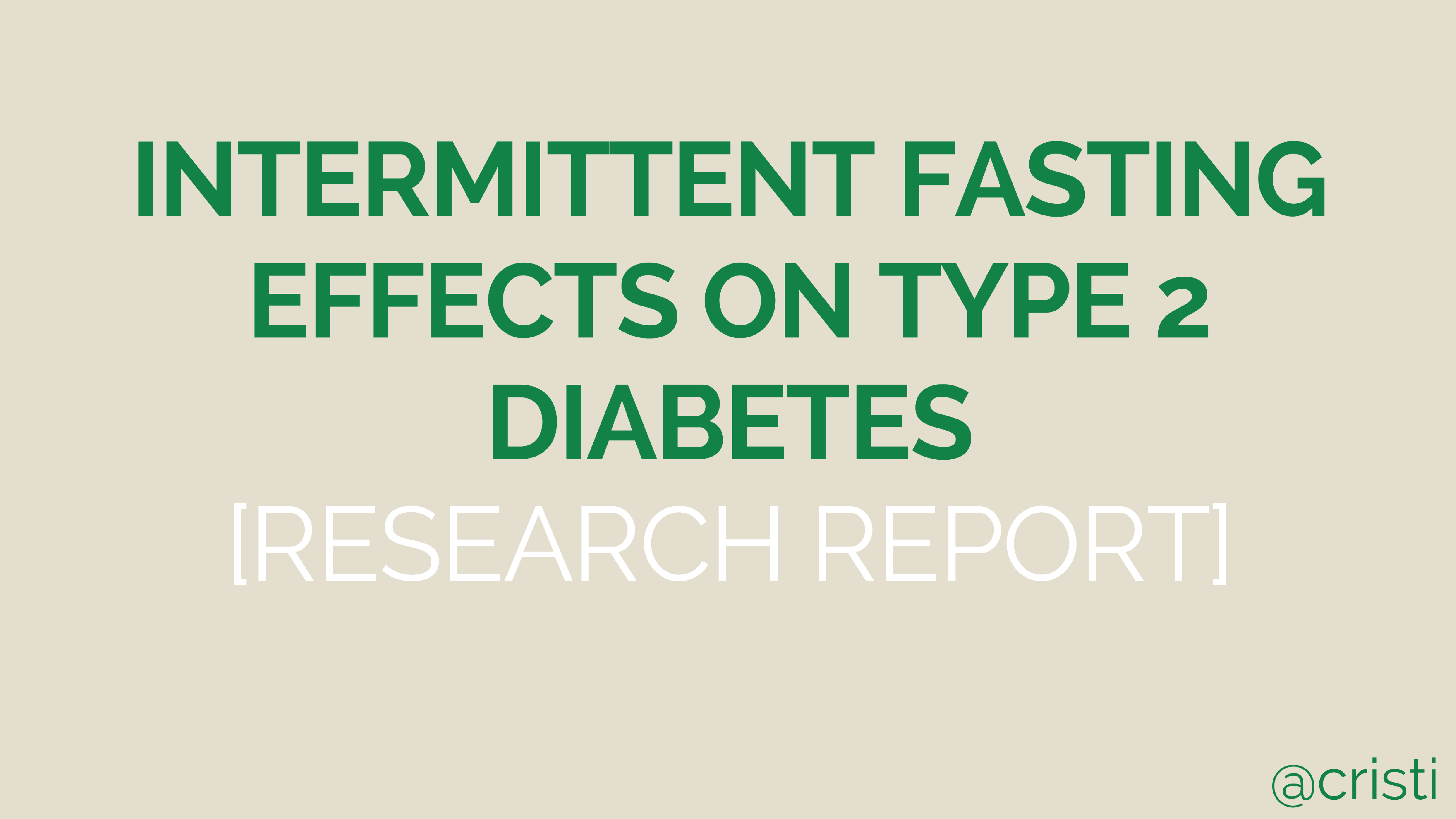Intermittent Fasting Effects on Type 2 Diabetes - [Research Report]

In a pilot study, Arnason, Bowen, and Mansell (2017) wanted to determine if there are any effects of an intermittent fasting approach on obese subjects suffering from Type 2 Diabetes. Specifically, they looked into the short-term biochemical effects and tolerability of IF.
Ten T2D obese (mean BMI 36.9 kg/m2) participants (9 women and 1 man) were included in the study which was designed as follows:
- baseline period (run-in) - normal eating - 2 weeks
- intervention period - IF with 18-20 hours of fasting per day - 2 weeks
- follow-up period - normal eating - 2 weeks
Subjects had to self-report (which may not be accurate): number of hours fasted, morning blood glucose levels, food intake, and exercise. More accurate, biochemical and anthropomorphic measures were taken as the subjects have been drawn blood (fasted) on the last day of each phase (baseline, intervention, and follow-up); blood glucose, insulin, CRP, blood pressure, body measurements (weight, height, waist circumference) were also performed.
According to the researchers:
"Clinical measures revealed that IF decreased mean body weight, BMI, blood pressure, and waist circumference as compared to baseline with significant changes only for body weight (1.4 kg; P = 0.009) and BMI (0.52; P = 0.01)." [source]
And, Table 5 (if you read the study) is insightful; IF improves fasting and postprandial glucose levels:
"Although short term (2 wk IF intervention), and without oversight (self reported and self controlled eating hours), the intervention resulted in significant improvements in diabetic glucose control. The IF phase yielded a significant increase in the incidence of fasting blood sugars at target (34.1% vs 13.4% baseline), and favorable decreases in postprandial hyperglycemia (39.4% vs 47.4% baseline).
...
We did not find statistically significant changes to blood pressure, insulin resistance or inflammatory markers after 2 wk of IF, although all trended towards normal during this phase. " [source]
As pointed out, during the IF phase, subjects spontaneously reduced caloric intake and increased their physical activity. I suspect that this is mostly due to the control and awareness an IF approach brings: you no longer put everything and anything into your mouth 'as it comes', but you follow your protocol and consume calories (food and drinks) in your feeding window alone. So, IF is not magic.
Then, during the follow-up phase:
"After a return to normal diet (Phase 3, follow-up), there was an inflection back toward baseline values for all parameters except a further nonsignificant decrease in waist circumference (0.3, P = 1.0)." [source]
Researchers are careful to point out the potential strengths and, most importantly, the limitations (small unbalanced sample size, self-assessments, short duration of intervention, etc). Finally:
"The results from this pilot study indicate that short-term daily IF may be a safe, tolerable, dietary intervention in T2DM patients that may improve key outcomes including body weight, fasting glucose and postprandial variability. These findings should be viewed as exploratory, and a larger, longer study is necessary to corroborate these findings." [source]
I'd recommend reading the full paper to get a better understanding of the study here.
To stay in touch with me, follow @cristi
Cristi Vlad, Self-Experimenter and Author
Hmmm....I am thinkin about this.
I think that IF is a nice strategy because it is highly anti-inflammatory and detoxifying.
I dont think that.
Don't really know what to think,about that